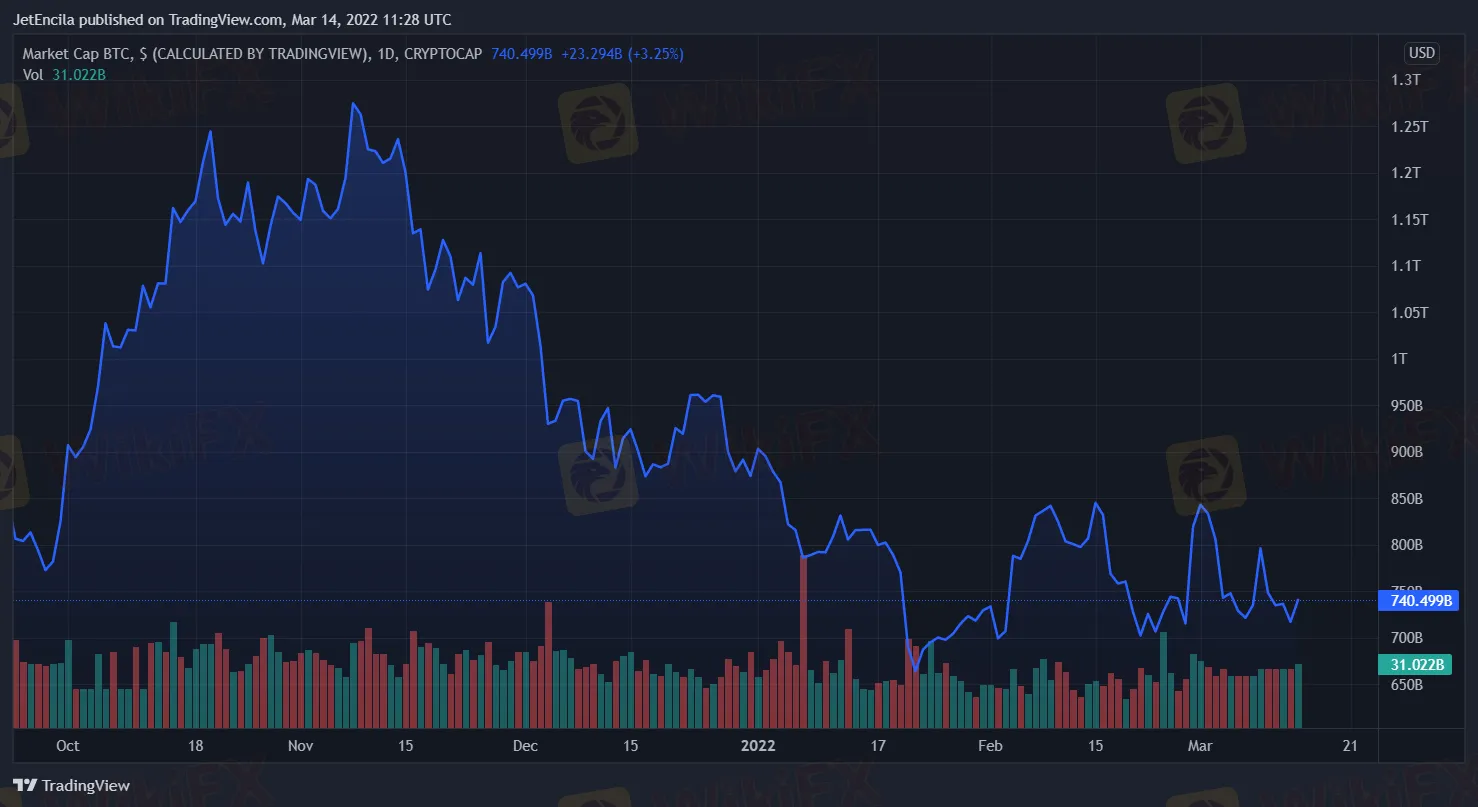简体中文
繁體中文
English
Pусский
日本語
ภาษาไทย
Tiếng Việt
Bahasa Indonesia
Español
हिन्दी
Filippiiniläinen
Français
Deutsch
Português
Türkçe
한국어
العربية
Japan Orders Crypto Exchanges Not To Process Transactions Involving Russian Assets
Abstract:There is growing fear among the G7 advanced economies that Russian firms are exploiting cryptocurrencies to circumvent financial restrictions imposed on the country for attacking Ukraine.
On Monday, Japanese authorities directed cryptocurrency exchanges to refrain from processing transactions involving digital assets that are liable to asset freeze restrictions on Russia and Belarus over the Ukraine war.
The move comes in response to a Friday Group of Seven (G7) statement in which Western nations announced they would enforce penalties on illegal Russian individuals who use crypto assets to transfer their wealth.
To punish Russia for its invasion of Ukraine, the United States, the European Union, and other allies increased their economic pressure on the country on Friday. Among the actions taken were measures to remove Russia from special trade and economic considerations.
The latest actions, according to US President Joe Biden, will collectively impair Russias financial structure that is already reeling from previously announced international sanctions, which have depreciated its currency and forced its stock exchange to shutter.
Using Crypto To Duck Sanctions
There is growing fear among the G7 advanced economies that Russian firms are exploiting cryptocurrencies to circumvent financial restrictions imposed on the country for attacking Ukraine.
The US Treasury Department published new recommendations mandating cryptocurrency exchanges based in the United States to abstain from transactions with sanctioned entities.
In the midst of the Ukraine-Russia conflict, cryptocurrency has become a contentious issue.
The Japanese government will bolster actions against cash being transferred via crypto assets in violation of penalties, the Financial Services Agency and the Ministry of Finance announced in a joint statement.

Hefty Fine And Prison Term
In spite of the G7 industrialized nations and the G20 powerhouses all urging for more regulation of “stablecoins,” Japan has been slow to catch up with the global trend.
Japans new initiative will punish people who make illicit payments to those targeted by sanctions with up to three years in prison or a 1 million yen fine. Additionally, non-fungible tokens are seen as a sort of payment.
According to an industry association, Japan had 31 cryptocurrency exchanges as of March 4.
By and large, cryptocurrency firms have complied with the fines. Notably, Kraken has not done so, and CEO Jesse Powell has stated that such a move would require a legal justification.
There are just a few that are still operating, including Trezor, and Binance has suspended the accounts of individuals on a sanctions list.
Meanwhile, Coinbase has stated that technology developed in the cryptocurrency business might be utilized to assure sanction compliance. Some 25,000 wallets affiliated with Russians have been frozen by one of the worlds major exchanges.
Disclaimer:
The views in this article only represent the author's personal views, and do not constitute investment advice on this platform. This platform does not guarantee the accuracy, completeness and timeliness of the information in the article, and will not be liable for any loss caused by the use of or reliance on the information in the article.
Read more

DOJ Investigates LIBRA Memecoin Scam: $87M Lost by Investors
DOJ investigates $LIBRA memecoin scam costing $87M-$107M. Crypto fraud rocks investors target Hayden Davis and sparks Argentine President Milei controversy.

WikiFX Community Hot Topic Collection Contest
Revealing Trading Secrets – Sharing Experience of Successful Traders!

TriumphFX: The Persistent Forex Scam Draining Millions from Malaysians
Authorities have uncovered extensive losses amounting to over RM23.7 million in connection with the TriumphFX foreign exchange investment scam, with 72 cases reported to date.

2025 SkyLine Guide Thailand Opening Ceremony: Jointly Witnessing New Skyline in a New Chapter
Today, judges from the 2024 SkyLine Thailand project, industry authority experts, and representatives from outstanding brokers on the 2024 SkyLine Thailand list gathered to witness the brilliant launch of the 2025 WikiFX SkyLine Guide.
WikiFX Broker
Latest News
How Do You Make Money in the Forex Market in March 2025
Europe’s High-Stakes Gamble: Can It Bridge the U.S.-Ukraine Divide?
Crypto Trading: New Trend among Indian Youth
Botbro Creator, Lavish Chaudhary Unveils New Project
DOJ Investigates LIBRA Memecoin Scam: $87M Lost by Investors
Beyond the Hype: The Three Pillars of a Profitable Crypto Investment
Malaysia’s EPF Declares Highest Dividend Since 2017 Amid Market Resilience
First UK Criminal Conviction for Unregistered Crypto ATMs Involves Over £2.5 Million
Consob Exercises MICAR Authority for the First Time, Shutting Down Unregistered Crypto Website
TD Bank Appoints Guidepost Solutions for AML Compliance Oversight
Currency Calculator






